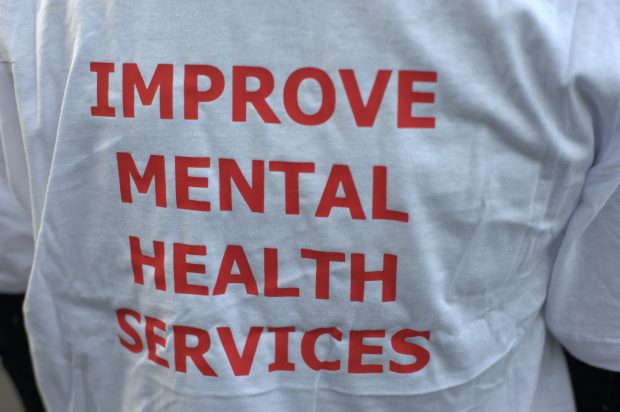Theresa May made mental health one of her key policy issues when she became Prime Minister, and it was supposed to be a key part of her relaunch after the snap election too. So far, though, the Prime Minister has done a fair bit of talking, and not a huge amount of doing. The big mental health launch in January involved very little money and a lot of worthy words about lifting the stigma. Worthy words are handy, given some people do still encounter a great deal of stigma when they are mental, rather than physically, ill. But the thing about being Prime Minister is that you can do a lot more than talk if you want.
Today, a review on mental health in the workplace that May commissioned has reported back with statistics on how difficult it still is for many people who suffer from mental illness. It finds that 300,000 people with long-term mental health problems lose their jobs every year, and only 11 per cent of employees discussed a recent mental health problem with their line manager. Led by Paul Farmer, the chief executive of Mind and Lord Dennis Stevenson, the Thriving at Work report wants all employers to have a framework of ‘mental health core standards’, which include open conversations about mental health, monitoring employee mental health and wellbeing, and developing a mental health at work plan. It also wants to make Statutory Sick Pay more flexible to help with a phased return to work for those who are starting to recover from an illness, and for employers to accept sick notes from mental health nurses as well as doctors.
The case that the report makes for these changes is compelling. It’s not just about being kinder to people who are unlucky enough to have a mental illness, though that in itself should be something a civilised society feels proud to do. Mental ill-health costs employers between £33 billion and £42 billion and the government between £24 billion and £27 billion, and the overall cost to the economy of between £74 billion and £99 billion. Some of the costs come from benefits, some from costs to the NHS and some of the cost of a less productive employee who turns up at work even though they are too sick to really manage.
It’s difficult to criticise a report that tries to encourage those costs to go down, and for more people to feel as though mental illness isn’t laying waste to their lives because of the impact it has, often unnecessarily, on their work. But if Theresa May, who backs what Farmer and Stevenson have been doing, is really serious about tackling mental health inequality in this country, then she must heed the rather mildly-put recommendation about what she can do. The report points out that ‘only three quarters of people with mental health problems receive any support. Among those who do receive care, too few have access to the full range of evidence-based interventions.’ It says the government and NHS bodies need to ‘continue their work to put mental health on a par with physical health’ and that the NHS needs to ensure that support fits around people’s working lives so they are not having to take more time off just to be treated.
At least those people are being treated at all, though. The NHS mandate includes a commitment to parity of esteem in the treatment of mental and physical illness. But this year over a half of Clinical Commissioning Groups have said they plan to reduce the proportion of their budgets that they spend on mental health, and while estimates vary of the number of mental health beds which have been cut, some suggestions are that 800 have disappeared over two years. Furthermore, the commitment for improving access to psychological therapy is to reach 25 per cent of those who need it by 2021, which still leaves a great deal of people without any NHS-provided help (and the quality of that help varies hugely from area to area, ranging from a few phone counselling sessions to an assessment of someone’s need which concludes that they are not yet depressed enough to be eligible for the very limited help on offer). IAPT also largely applies to counselling and Cognitive Behavioural Therapy for depression and anxiety, rather than other conditions such as Borderline Personality Disorder, Post-Traumatic Stress Disorder and so on, which tend to be treated using other, less widespread therapies.
Obviously these things take time – and a great deal more money than the £1 billion allocated over the period of the Five Year Forward View For Mental Health, which runs to 2021. This is the best method of improving mental health treatment, and work already needs to be underway on the plans for the next Forward View.
Employers can do so much to help their workforce. But they are not the National Health Service, and therefore if a colleague isn’t getting the treatment they desperately need, they’re unlikely to have much of a chance of managing their mental health condition well enough to make a permanent return to the workplace.
Mental health as an issue has made great gains in recent years, to the extent that a report on dealing with it in the workplace seems timely, rather than a niche interest that employers will certainly overlook. But politicians are still getting away with warm words about tackling the stigma and humbly recognising that much more needs to be done. It is, after all, Theresa May’s job to ensure that what needs to be done is done, not just encourage people to be more open about an illness which the NHS is still struggling to treat.







Comments